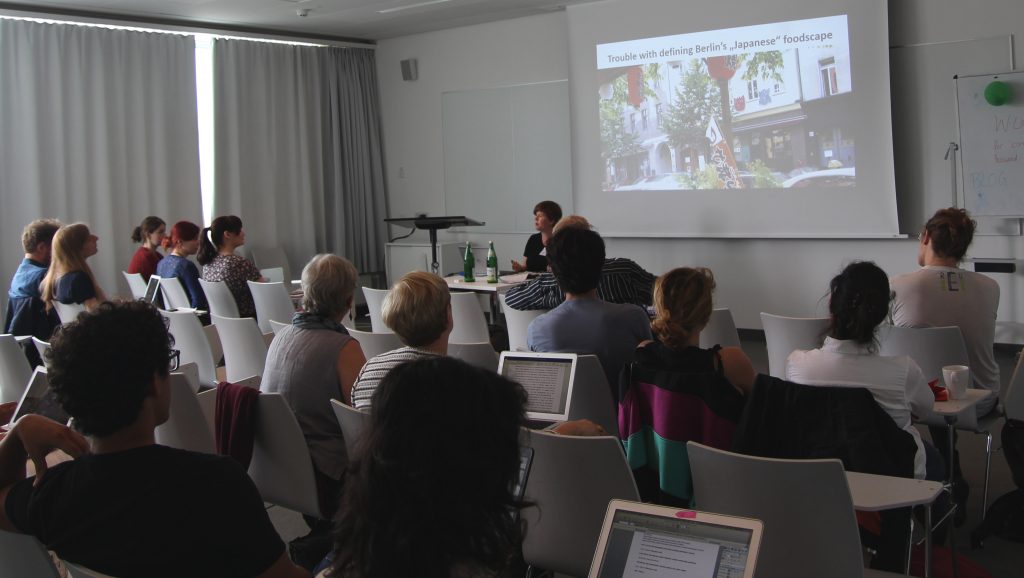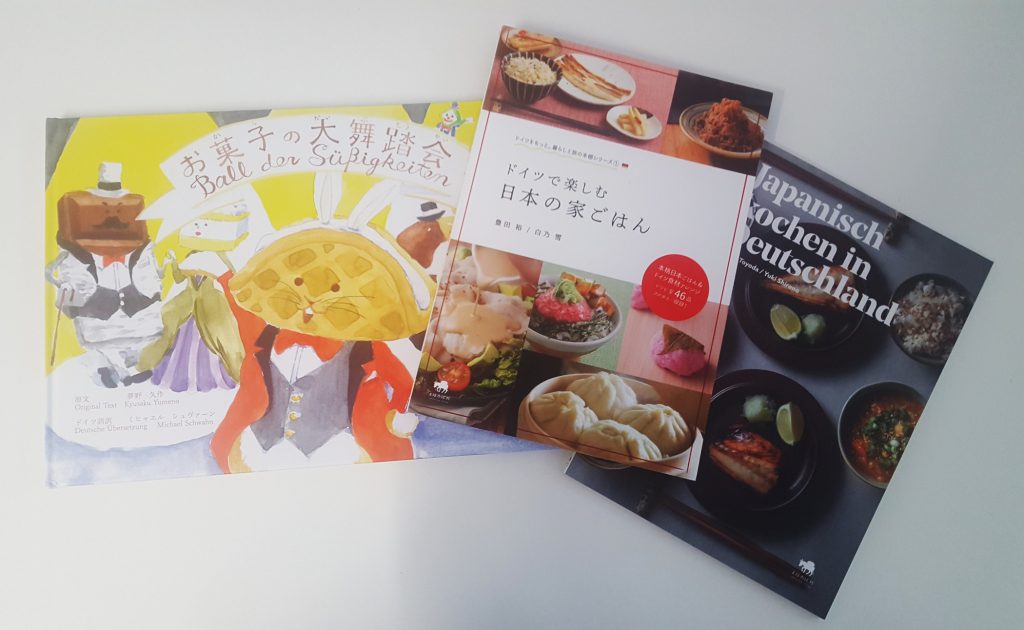by Galina Khoikhina and Ivan Kaira
The special thing about the course „Methods and Research Techniques in Japanese Studies“ is that not only do we learn the theoretical basis of what types of research there are, but we also have the opportunity to try out the freshly gained knowledge in practice. One of the assignments we had recently was conducting an online interview with students from Seikei University. The theme was „Food Habits of Japanese People“.
During the week that we were preparing for the interview, we were constantly discussing the upcoming study with our groupmates. Even those who already had previous interview experience were a little bit nervous, but we were nevertheless excited about it. To prepare for the interview we have read a lot and learned what types of interviews exist. However, applying all of this knowledge immediately into practice was not so simple. Unexpected answers led to unexpected changes in the questions and of course, we had to improvise a bit. We would like to express our gratitude to the students from Seikei University: they were very patient, and friendly and explained all of their answers in great detail.

What’s interesting is that when we later exchanged impressions about our experiences within our study group we identified several similar experiences. First, even though we all prepared the questions separately, we asked pretty similar questions. For example, questions dealt with the Covid-19 pandemic, modern food trends among Japanese students or intergenerational tendencies. In addition, many students noted that some interesting topics were suggested by the interviewees themselves. And last but not least, we were all surprised that in terms of the Japanese language, everything seemed to go surprisingly smoothly (at least it seemed that way to us).
Among the other lessons, we have learned from our online interviews was the necessity to print out the prepared questions despite the temptation to have them solely on the screen. This may also help taking notes and to change questions on the spot. As for the note-taking itself, we have discovered that it did require some practice and, due to the absence of such for most of our group, it was quite challenging to simultaneously concentrate on both writing and actively listening to the interviewees. It was also tremendously helpful to learn that we always have to use several backup plans in case our communication or recording devices wouldn’t work or simply due to our internet connection being unstable. Fortunately – thanks to Professor Reiher – we talked about this prior to conducting our interviews, which prevents inconvenient situations.
On that note, we would like to thank first and foremost Professor Reiher from Freie Universität Berlin for bestowing us with such an opportunity and Professor Kawamura from Seikei University for connecting us with the students as well as the students themselves for helping us to gain experience in conducting the interviews in a very friendly atmosphere. We also cherished their reviews of our interviews: they motivated us to keep exploring interviews as a method full of opportunities. All in all, considering the growing popularity of online interviews, it was an extremely valuable experience that will surely be useful to us in the future.

This year’s course participants
Copyright © Cornelia Reiher 2022


















